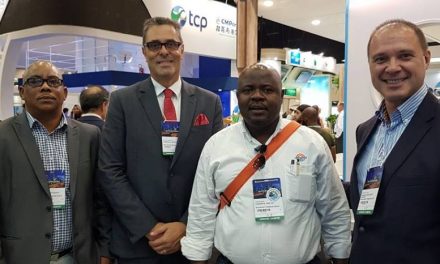
UNCTAD Secretary General on the enormous potential of intra-African trade

“All studies show that what Africa sells within Africa has more value added than what Africa sells to the rest of the world, which is mostly raw materials. That means intra-African trade creates more employment in the source country than Africa trading with the rest of the world,” said the Secretary General of the United Nations Conference on Trade and Development, Dr Mukhisa Kituyi.
Dr Kituyi spoke to Zipporah Musau of Africa Renewal on a wide range of issues that impacts inter-continental trade.
Dr Kituyi, who was closely involved with the process to establish the African Continental Free Trade Area (AfCFTA) said 49 of Africa’s 55 countries have signed to accord. “When at least 22 countries ratify it, the AfCFTA will officially come into force, potentially making the continent the largest trading bloc in the world,’ he said.
“For Africa, a clear determination to expand trade among ourselves is an important step. Uncertainties in international trade increase the premium on regional intra-African trade. Secondly, what we have learned from the rest of the world is that even if there is populist protectionism, it is a short-term phase that we’ll ride out. But for Africa to learn from the experience of East Asia and Latin America even as we wait for protectionism to end, we must build productive trading capacities through regional value chains,” said Dr Kituyi adding that African countries need to build the capacity and effect structural transformation for the continent to be a competitive international player.
“The creation of a continent with a free trade area is therefore an important step to building collectively, the competitiveness of African labour and African products internally and internationally,” he said.
On the gains for individual countries, he continued “We look to gain more industrial and value-added jobs in Africa because of intra-African trade. Secondly, it will build competitiveness, which you can then unleash onto the rest of the world. Thirdly, we will be removing domestic market distortions which have been adding a burden to domestic consumers because of too much protectionism.”
Acknowledging that there are several non-tariff barriers to intra-continental trade, Dr Kituyi said a general lack of political will to remove these barriers, is often exploited by government to protect their own products.
“When there is a deficit of political goodwill, excuses are made to slow down trade. Many times, traders will reach the border and be told, “This product looks too old to be sold to us” or “The quality doesn’t seem to be right,” or “We can not ascertain that this was made in your country.” The absence of goodwill leads to the use of too many non-tariff measures as excuses to slow down trade. Cultivating goodwill requires that non-tariff barriers are rolled back and trade is increased between African countries,” he said.











































